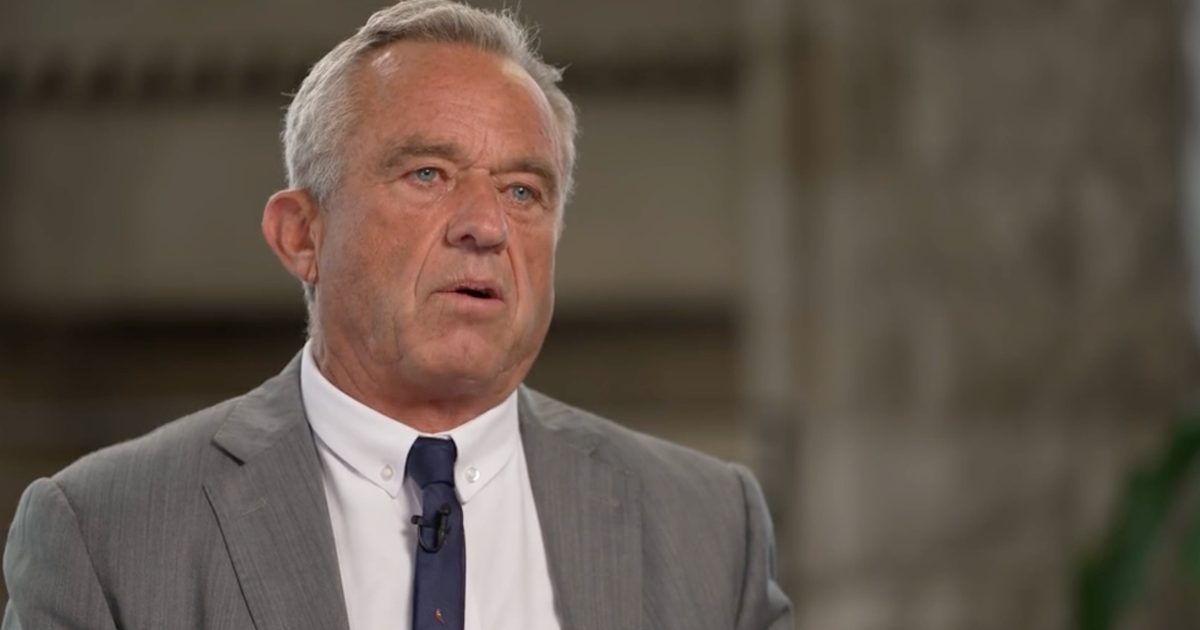Migrant border crossings dip in March, with U.S. officials crediting crackdown by Mexico
Washington — The number of migrants apprehended along the U.S.-Mexico border dipped in March, internal government statistics obtained by CBS News show, a surprising trend that American officials say mainly stems from an immigration crackdown by the Mexican government.
Border Patrol agents apprehended over 137,000 migrants who crossed the U.S. southern border unlawfully in March, down from nearly 141,000 in February, according to preliminary Customs and Border Protection figures confirmed by three U.S. officials.
It's the first time in seven years — and the only time during the Biden administration — that illegal crossings along the U.S.-Mexico border did not increase from February to March, historical CBP statistics show. In fact, in the past three years, illegal crossings have spiked, by at least 33,000 additional apprehensions, during this time period.
Another 52,000 migrants were processed at legal border crossings in March, many of them under a Biden administration process that allows prospective asylum-seekers in Mexico to enter the U.S. with the government's permission after securing an appointment through a smartphone app.
Officials still expect to see an increase in migration in the spring, as has been the case historically. Nonetheless, the lower-than-expected number of illegal crossings in March is a reprieve for the Biden administration, which has faced an unprecedented humanitarian crisis and a political firestorm as a result of the record numbers of migrants crossing the southern border.
Pinpointing one single reason for the drop in migrant crossings is difficult, as migration is a highly complex phenomenon influenced by constantly changing push and pull factors, such as American policies, tactics by smugglers and conditions in migrants' home countries.
But three U.S. officials said they believe Mexico's increased actions to slow U.S.-bound migration have played a major role in the lower number of unlawful crossings recorded by American authorities. When migrant crossings soared to record levels in December, the Biden administration dispatched top officials to Mexico City to convince Mexican authorities to do more to reduce migrant arrivals near the U.S. border.
A senior CBP official, who requested anonymity to speak freely about U.S.-Mexican efforts, said Mexico has deployed additional authorities to prevent migrants from traveling to the American border via freight trains or buses. Mexican officials are also deporting some of the migrants they intercept on these routes further south, the CBP official added.
The drop in illegal crossings in March, the CBP official noted, was most pronounced among non-Mexican migrants, whom Mexican officials can stop from moving within Mexico.
"That kind of highlights that one of the reasons for the decrease was the government of Mexico's continued significant enforcement efforts to disrupt some of the transportation networks moving people up to the border," the official said.
Beyond Mexico's actions, American officials also attributed the downtick in migrant crossings to increased deportations by the U.S.
Since May, the U.S. has deported or returned more than 630,000 migrants, including nearly 100,000 parents and children traveling as families, to Mexico or their home countries, according to Department of Homeland Security data. In one week in March, the U.S. conducted 39 deportation flights, the senior CBP official told CBS News, calling the number a record.
In March, the busiest sectors for illegal crossings continued to be the areas near San Diego and Tucson. Texas Gov. Greg Abbott, one of the most outspoken Republican critics of the Biden administration's immigration policies, has taken credit for illegal crossings concentrating in Arizona and California in recent months, citing his efforts to fortify the banks of the Rio Grande with razor wire and other barriers.
In a recent interview with CBS News, U.S. Border Patrol chief Jason Owens said that while Texas' actions may be having "some impact" in deterring migrants, they were not the "one panacea." Mexico's actions are also playing a role, he said.
In a statement, CBP spokeswoman Erin Waters said the Biden administration would continue to work with other countries, including Mexico, to combat the criminal groups smuggling migrants into the U.S.
Still, Waters added, "CBP remains vigilant to continually shifting migration patterns and will adjust operations as necessary. The fact remains that we continue to experience serious challenges along our border; we need Congress to take action and provide additional resources and tools to address them."
Ariel Ruiz, an analyst at the Washington-based Migration Policy Institute, said relying on Mexican immigration enforcement is not a durable solution for the U.S. Ruiz said the Mexican government's actions are creating a "bottleneck" of migrants in Mexico, since it cannot deport most migrants to other countries.
"It's delicate because it's building pressures inside of Mexico," Ruiz said. "And the moment that Mexican enforcement cannot keep up with those actions or say there's a change in administrations in Mexico's elections coming up in June, there may be pressures that push those migrants to go ahead and come to the United States."
Over the past months, President Biden has considered tightening asylum rules at the southern border using a sweeping presidential power that his predecessor, former President Donald Trump, invoked several times to restrict legal immigration and asylum. Administration officials have, however, noted that any executive action would not replace the need for Congress to reform an overwhelmed immigration system that was last updated in the 1990s.
The senior CBP official said "there's no silver bullet available via executive action."





